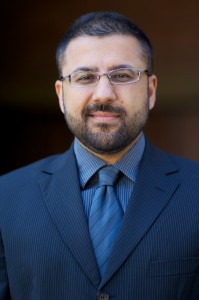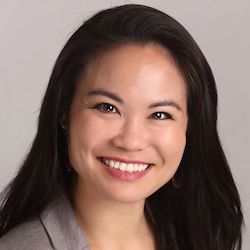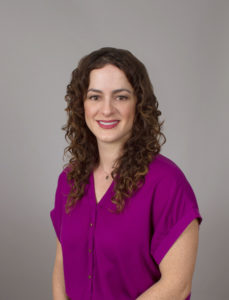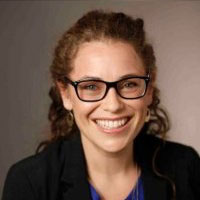As students head back to school, experts share wellness tips
As students from kindergarten to college head back to school, they and their families typically experience a mixture of excitement and anxiety. USC experts share strategies for staying physically, mentally and even spiritually healthy.
Contact: Jenesse Miller, (213) 810-8554 or jenessem@usc.edu
What’s the biggest challenge faced by today’s college students?
 “What I have noticed in my work with students is that many of them face the same hidden root challenge: loneliness. While it is now fashionable to refer to this cohort of college and university students as a coddled generation of ‘snowflakes,’ the reality is they face unprecedented challenges and circumstances.
“What I have noticed in my work with students is that many of them face the same hidden root challenge: loneliness. While it is now fashionable to refer to this cohort of college and university students as a coddled generation of ‘snowflakes,’ the reality is they face unprecedented challenges and circumstances.
“Today’s students are creative and courageous, engaged and empathetic, diverse and inclusive. It needs to be the job of colleges and universities to help students develop resources that enable them to thrive and flourish mentally, emotionally and spiritually, so that they may fulfill their academic aspirations and achieve their professional goals.”
Varun Soni is USC dean of religious life and vice provost of campus wellness and crisis intervention. His comments are excerpted from his recent opinion in the Los Angeles Times.
Contact: (213) 740-6110 or vasoni@usc.edu
Watch Dr. Soni co-host a Facebook Live broadcast on student wellness that took place on Friday, August 16 at 12:30 p.m.
Thrive 101: When the lesson is wellness
 “The USC THRIVE course is really about learning how to take care of your own well-being. Every week we explore different themes like making meaningful connections, revamping our definitions of success, mind-body-spirit, what it takes to build a safe community and the importance of diversity.
“The USC THRIVE course is really about learning how to take care of your own well-being. Every week we explore different themes like making meaningful connections, revamping our definitions of success, mind-body-spirit, what it takes to build a safe community and the importance of diversity.
“What’s striking is how ready the students are to have deep, sometimes difficult conversations: about being on your own for the first time, about their faith, about being lonely. They find they have to have the willingness to be vulnerable to build better connections with their peers. The discussion section is a powerful, safe space for students and the hope is we grow the course every year.”
Ashley Uyeshiro Simon is an associate professor of clinical occupational therapy at the USC Chan Division of Occupational Science and Occupational Therapy and the coordinator for THRIVE: Foundations of Well-Being, a course designed for students, by students, to promote well-being and mental health among undergraduates.
Contact: (213) 821-6359 or uyeshiro@chan.usc.edu
What happens when medical students focus on self-care?
 “Aspiring physicians are typically driven, disciplined, empathetic people who put themselves last. Mindsets such as perfectionism, reluctance to admit weakness or ask for help, procrastination, self-criticism, and self-neglect may be the norm, but they can also get in the way of achieving goals or feeling content.
“Aspiring physicians are typically driven, disciplined, empathetic people who put themselves last. Mindsets such as perfectionism, reluctance to admit weakness or ask for help, procrastination, self-criticism, and self-neglect may be the norm, but they can also get in the way of achieving goals or feeling content.
“We’re trying to counter that with a robust required wellness curriculum, free yoga and meditation, social connection, de-stigmatizing the topic of mental health and making innovative changes to the educational environment to support student health. We believe that physicians must care for themselves before caring for others.”
Chantal Young is director of medical student wellness and a clinical assistant professor of psychiatry and behavioral sciences at the Keck School of Medicine of USC.
Contact: chantaly@usc.edu
For elementary-age students, including families is key
 “Creating a welcoming environment for students who may be feeling anxiety after several violent racial incidents this summer includes working closely with families. There are documented advantages to inviting parents into schools as valued constituents; conversely, when parents are dismissed and precluded from involvement, students suffer because of the absence.
“Creating a welcoming environment for students who may be feeling anxiety after several violent racial incidents this summer includes working closely with families. There are documented advantages to inviting parents into schools as valued constituents; conversely, when parents are dismissed and precluded from involvement, students suffer because of the absence.
“Authentically caring and rigorous teachers create democratic and safe classrooms. This means establishing a connection between the teacher and students based on concern and authentic care for one another that includes mutual respect over time. Classroom environments should positively include all students by establishing fair and clear expectations and predictable procedures.”
Jenifer Crawford is an associate professor of clinical education at the USC Rossier School of Education. Her research focuses on social justice education, democracy and access in schools and bridging critical social science theory to teacher practice.
Contact: (530) 519-4085 or jenifer.crawford@usc.edu
Photo by Eric Lindberg/USC



